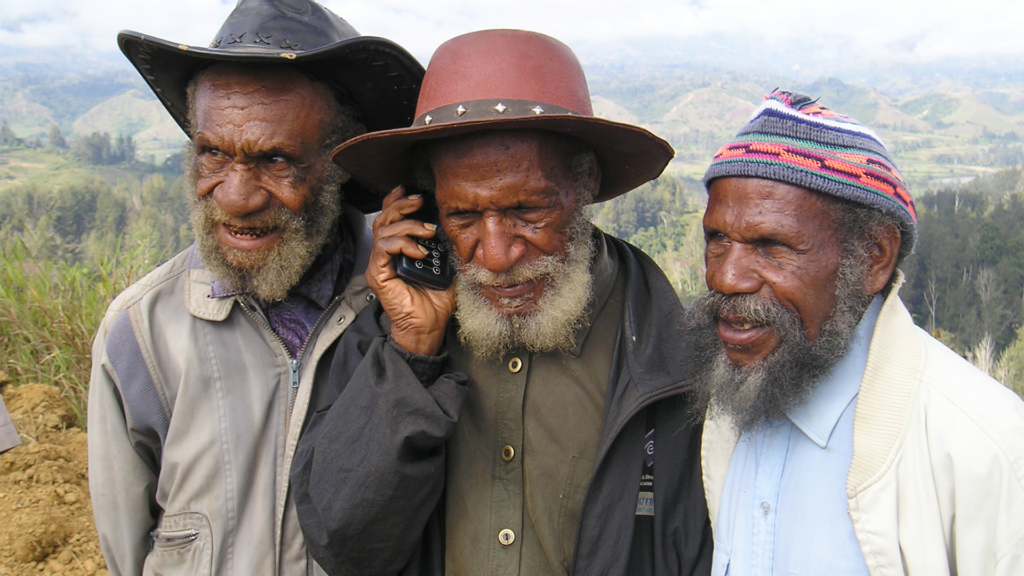A friend of mine once shared this experience with me which really caught my attention.
It took place at the time when the first ceasefire was brokered between the Papua New Guinea government and the Bougainville Revolutionary Army (BRA) after a decade of civil war. Normalcy in some places was being restored and basic services were slowly coming back. But this did not stop the killings in most places on the island and death was still an inevitable part of life.
One moment you see your friend, the next moment he’s missing. You wouldn’t dare ask, “What happened to him?”, having knowledge of the things all around.
With this backdrop of uncertainty people found courage and hope in God. As the Psalmist counsels, “And call upon me in the day of trouble: I will deliver thee, and thou shalt glorify me” (Psalms 50:15). Religious service attendance therefore, in all denominations, was high.
A Catholic youth gathering was planned to be held not far from the church agency primary school. Most students opted to go with their teachers except for a few teachers plus the head teacher.
The head teacher suggested they write a letter to the local BRA unit to guarantee their safety. But the church clergy said, “This is a religious gathering and nothing would disrupt the meeting.” All except the head teacher was adamant. So the clergy gave them a choice. “Those who feel like going can go. And if you are fearful, then don’t go.” The head teacher, being an ex-combatant, raged with anger, punched the clergy on the right cheek and ripped off his trousers. Blood trickled down his beard. All watched helplessly with pitying eyes to see the perpetrator’s next course of action. The victim, to everyone’s surprise, calmly said, “Punch me on my left cheek as well and rip off my shirt too.” This conspicuous act from the clergy put the head teacher off and he apologised publicly in shame.
This priest teaches us a very important lesson. He exercised practical humility—without which forgiveness is not possible. Jesus, our greatest example, stated in Matthew 5:38–40: “You have heard that it was said, ‘Eye for eye, and tooth for tooth.’ But I tell you, do not resist an evil person. If anyone slaps you on the right cheek, turn to them the other cheek also. And if anyone wants to sue you and take your shirt, hand over your coat as well.”
He did just that. As a man, this is hard to accept. Society says you’ve got to fight to be a man. No man would accept being called a coward.
My friend ended his story saying, “I haven’t see an Adventist do that, turning the other cheek.”
I uttered a silent prayer: “Lord, help us have this kind of spirit in the church, a spirit of true humility at times where love isn’t reciprocated back to us.”
In fact loving our enemies is what Jesus continued to emphasise in these verses.
Matthew 5:43: “You have heard that it was said, ‘Love your neighbour and hate your enemy.’ But I tell you, love your enemies and pray for those who persecute you, that you may be children of your Father in heaven.”
Jesus our Lord and Master left an example for us to follow when He prayed for His persecutors while hanging on the cross writhing in anguish and pain.
Luke 23:34: “Jesus said, ‘Father, forgive them, for they do not know what they are doing.’ And they divided up his clothes by casting lots.”
We also see the same in the words of the first Christian martyr Stephen.
Acts 7:60: “Then he fell on his knees and cried out, ‘Lord, do not hold this sin against them.’ When he had said this, he fell asleep.”
May we all be praying for the latter rain Spirit to fill our hearts with humility and be ready to forgive and be forgiven.
Telly Orekavala is a chaplain at Devare Adventist High School, Bougainville Mission, PNGUM.






